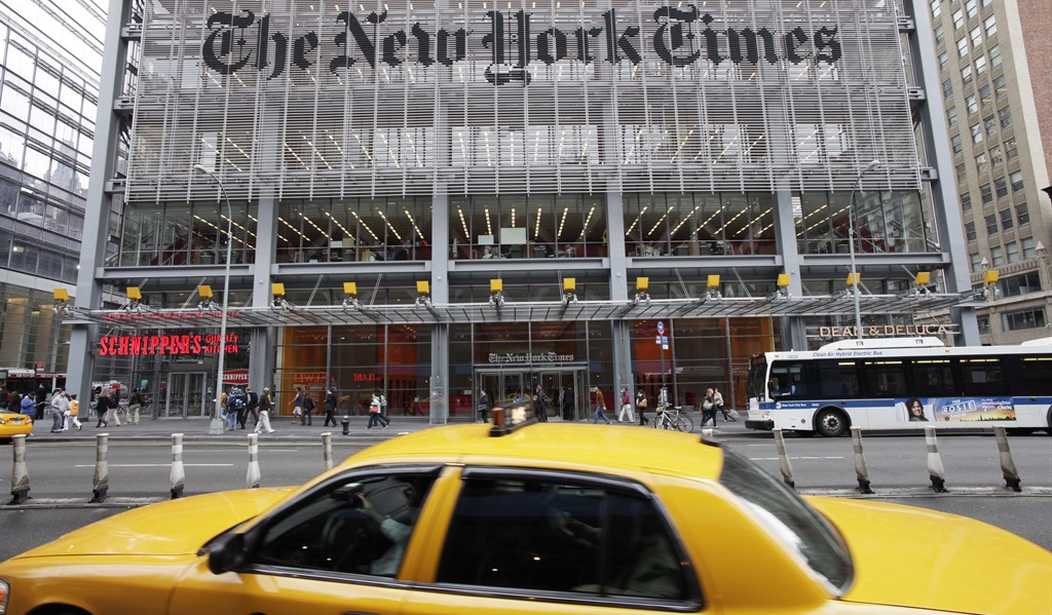We've been following recent developments surrounding the Special Counsel probe, including the indictments that have been handed down, its reported investigative focus, as well as apparent evidence of anti-Trump animus and potential conflicts of interest among certain members of Robert Mueller's team. On the latter front, we've quoted a number of Mueller critics who do not believe he should be fired, but who have nonetheless highlighted causes for concern about bias and transparency. On Friday, I linked to a Washington Post op/ed written by former federal prosecutor Andy McCarthy, who downplayed some of the anger directed over anti-Trump texts exchanged between FBI agents Peter Strzok and Lisa Page. Law enforcement officials can have personal political views and still do their jobs with professionalism, he contended, before training his attention on the most concerning piece of their correspondence:
Worse, in one August 2016 text, one of them, FBI agent Peter Strzok, asserted that the FBI “can’t take that risk” that Trump could be elected, equating some unspecified action against this seemingly unlikely possibility to “an insurance policy in the unlikely event you die before you’re 40.” Dismayingly, this text, which crosses the line between political banter and tainted law enforcement, refers to a meeting in the office of FBI Deputy Director Andrew McCabe, then (and now) the bureau’s No. 2 official. While not as weighty, legitimate questions have been raised about McCabe’s own objectivity, his wife’s state Senate campaign having been lavishly funded by groups tied to Virginia Gov. Terry McAuliffe (D), a Clinton insider.
We covered the McCabe wrinkle to the Clinton email scandal months ago, but that's more of a side note now. The pressing question is what Strzok meant by his "can't take that risk" and "insurance policy" missives, and what specifically was discussed in McCabe's office. McCarthy believes those texts crossed an important threshold separating "political banter" from "tainted law enforcement," and are more sigiifciant and concerning than bellyaching about Trump being "loathsome" and sundry other insults that grabbed headlines. Perhaps there are explanations for the "insurance" musings that are satisfactory and unconcerning. Perhaps there is documented evidence about what took place at the private meeting in question. But these developments represent legitimate concerns for people to raise.
Recommended
Alas, many Americans are likely totally unaware that those concerns even exist -- let alone are valid -- because some major news outlets have completely ignored them. Journalist Byron York tweeted over the weekend that aside from the McCarthy line quoted above, the Washington Post has not mentioned the most problematic texts in the entire chain. And the New York Times? A total blackout:
Searched WaPo site for 'Strzok' and 'insurance policy.' On WaPo, one hit; guest opinion piece by @AndrewCMcCarthy. On NYT, nothing.
— Byron York (@ByronYork) December 16, 2017
I retweeted Byron's observation with the Post's melodramatic Trump-era slogan, "democracy dies in darkness," to which a pack of liberals replied by accusing York and me of "lying." Their proof to that end were links to Post and Times pieces about the Strzok texts...none of which included the "insurance policy" bit. I remarked on how these people were proving York's point about a glaring blind spot created by the mainstream media:
Extraordinary reading the replies. Liberals calling Byron (and me) a liar because the two newspapers have covered Strzok & the texts...but NOT the "insurance policy" exchange. I suspect they probably don't understand Byron's point *because* of...Byron's point. https://t.co/j26LcNDwEz
— Guy Benson (@guypbenson) December 16, 2017
Our critics thought we were lying because they didn't understand our critique. They didn't understand our critique because they were ignorant of certain relevant evidence. And they were ignorant of that evidence because the media sources they were indignantly defending hadn't seen fit to furnish them with even a whisper of said evidence. QED. On the broader subject of slanted press coverage, center-left writer Will Saletan hits the nail on the head in his analysis of what fuels most bias:
The biggest factor in media bias, by far, is that too many reporters and editors don't see the need to scrutinize liberal claims as carefully as they scrutinize conservative claims. It's pervasive and unconscious. https://t.co/BoXb0dNlef
— Will Saletan (@saletan) December 16, 2017
That's "because they are mostly liberals who want to believe liberal claims, whereas their journalistic fact-checking juices get flowing to confront conservative claims," I responded. Jonah Goldberg sunk his teeth into that exact topic in a column this week, explaining the phenomenon of political media "mistakes" overwhelmingly cutting in the same direction: Against conservatives and Republicans. It's not a vast conspiracy, he reasons, but rather the consequence of the rampant confirmation bias that results from most journalists holding similar left-leaning worldviews. I'll leave you with my discussion of coverage of the FBI texts on Media Buzz yesterday, which was a our third topic in this clip:

























Join the conversation as a VIP Member